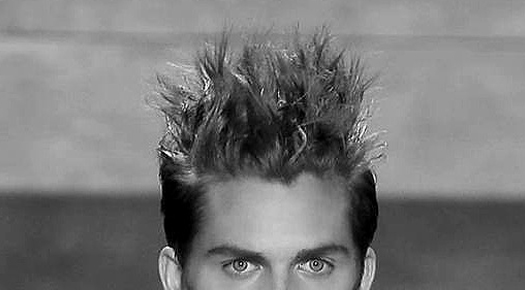
Hairstyles categorized as ‘homosexual’ and ‘devil-worshipping’ have been banned in Iran, along with sunbed treatments, tattoos and plucked eyebrows for men, which are all considered un-Islamic. This move, aimed at discouraging western influences on Iranian lifestyle, follows a trend where every summer the country’s authorities crack down on men and women sporting clothes and hairstyles that have in some way been inspired by the West.
While in 2010, Iran banned mullets, ponytails and long gelled hair for men, it allowed those who are fashion conscious, floppy fringes and quiffs that were popular during the 1980s and rather outdated by the 2000s.
President Hassan Rouhani has in the past spoken out against such ludicrous crackdowns, stating also that the police are responsible for implementing the law and not enforcing Islam. Yet, religious hardliners in the country have maintained a defiant stance in these matters.
Mostafa Govahi, leader of the barbers’ union in Iran, told the media on May 4 that fanciful hairstyles had been banned and those who continue to offer them stand the risk of having their shops closed.
“Devil-worshipping hairstyles are forbidden. Any shop that cuts hair in the devil worshipping style will be harshly dealt with and their license revoked. Tattoos, solarium treatments and plucking eyebrows [for men] are also forbidden,” he said.
According to Govahi, barbers across the country have been told that those who help Iranians imitate such western hairdos or violate the regulations implemented by the Islamic establishment would stand the risk of having their shops shut if they do not abide by the initial warning.
“Usually the barber shops who do this do not have a license. They have been identified and will be dealt with,” he said.
In another interview, Govahi said that barbers in the country had been handed a list of permissible hairstyles for men. While he said hairdos resembling homosexuals and devil-worshippers had been banned, he did not divulge further details on what comprised either.
“Haircuts that show symbols or signs of devil worshippers or those adopted by homosexuals are banned,” he said. “I won’t allow such wrongful western styles as long as I’m in this position.”
Govahi also said that this policy had been inspired by Iran’s cultural norms that have been outlined by the Supreme Leader Ayatollah Ali Khamenei.
Recently, a group of religious hardliners in the city of Qazvin wrote to authorities, seeking a ban on full-body waxing for women in beauty parlours. They said that their concern stemmed from more and more women opting for hair removal treatments for their private parts. In the past, shop mannequins too have been subjected to similar scrutiny with the country’s authorities strongly disapproving of figurines that have sizeable breasts or hips.
Often, religious police and plain-clothed militia are deployed on the streets and within public buildings, such as shopping malls, to crack down on men and women who experiment beyond the country’s forceful dress code. Despite Rouhani repeatedly clarifying that he opposes such practices, Iran’s religious police and similar forces continue to function arbitrarily under the direct control of Khamenei.
In controversial remarks last week, Rouhani told a group of senior Iranian officers:
“Police do not have a duty to enforce Islam. No police officer can do something and say he did it because God commanded it, or the prophet had said so. It has nothing to do with the police… The police only have one duty: to implement the law. That’s it.”
His liberal stance was met with sharp criticism from religious hardliners, among whom were several influential clerics.
Ayatollah Nasser Makarem Shirazi responded by saying, “All individuals, including the police, are required to enforce rules of Islam.”
Photo Credits: Twitter
